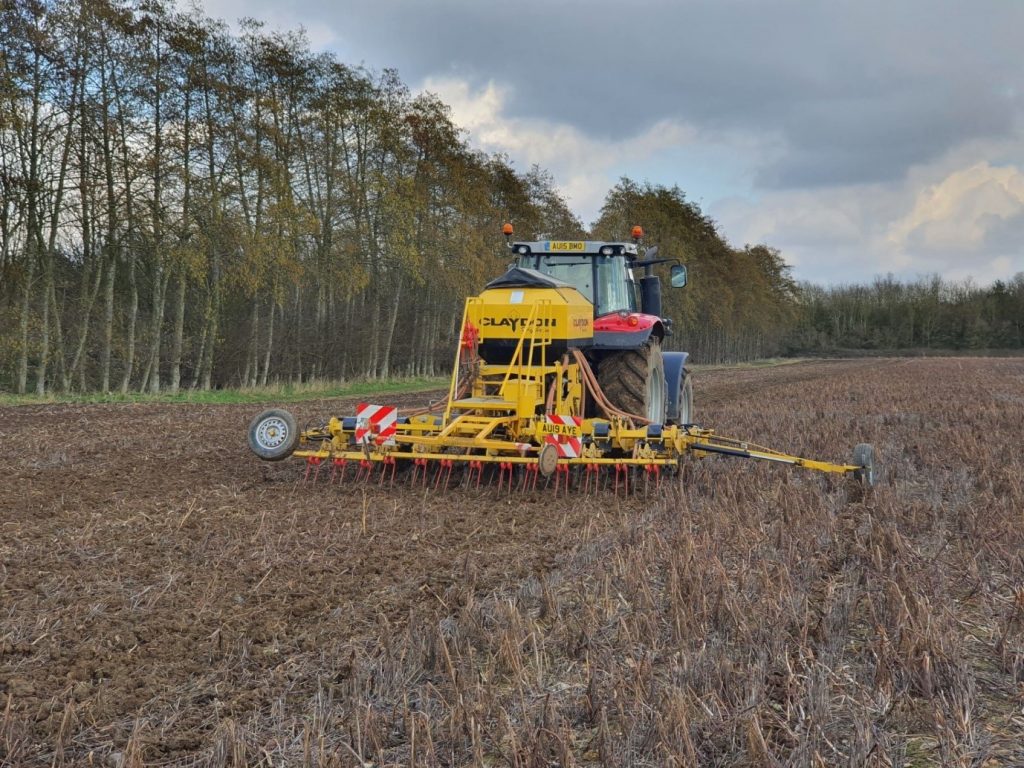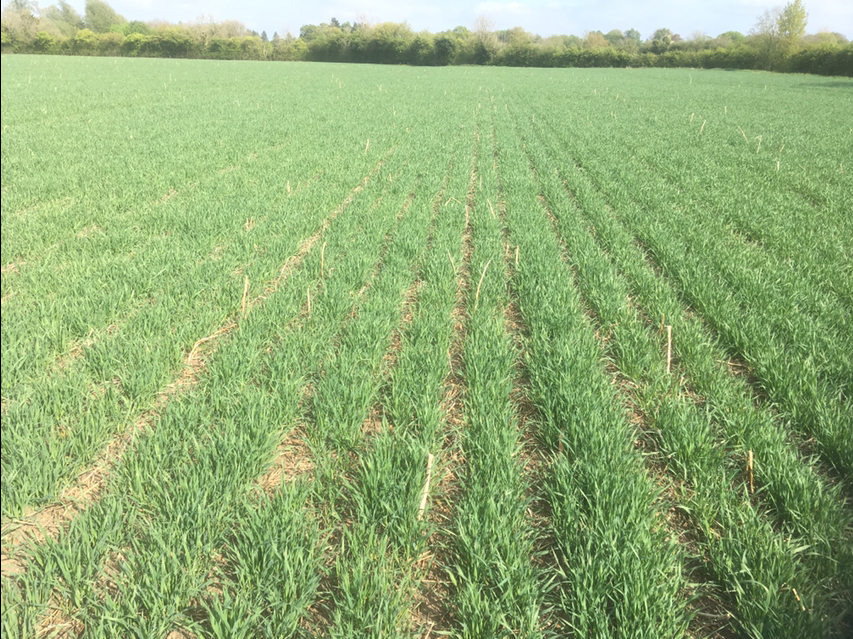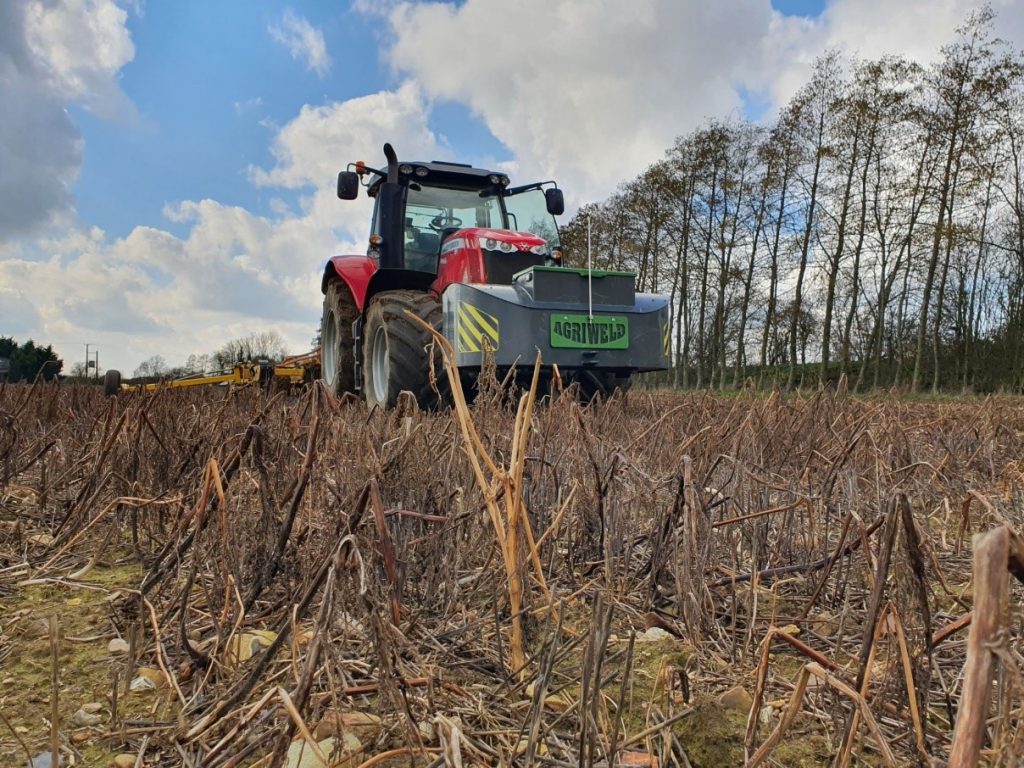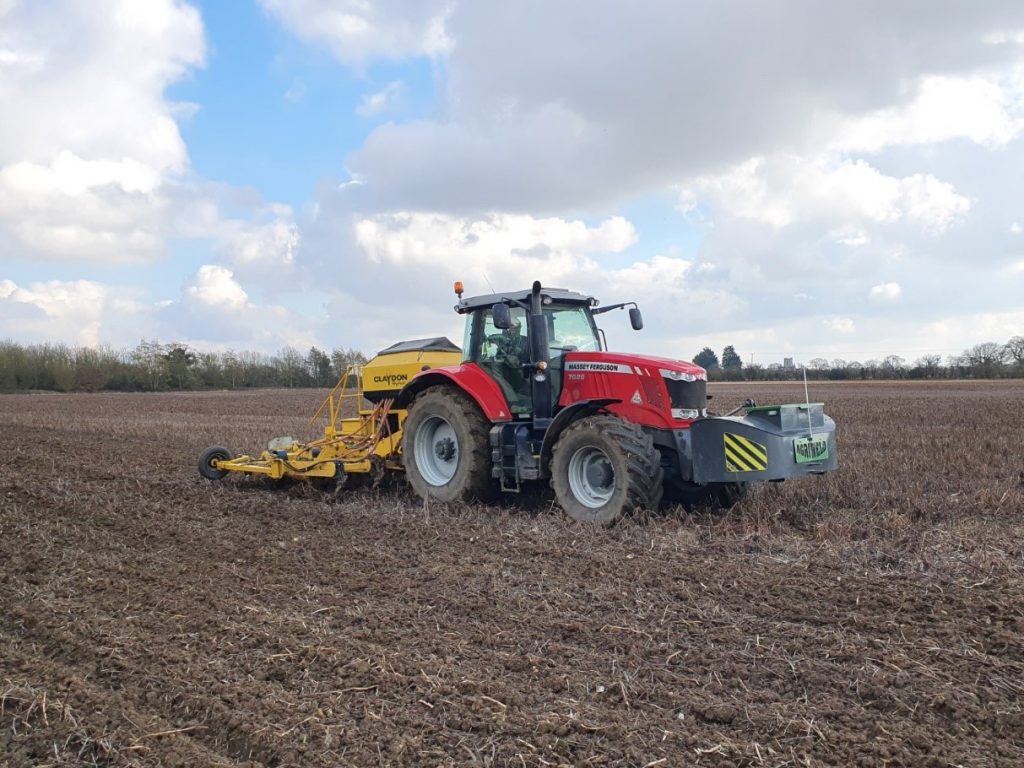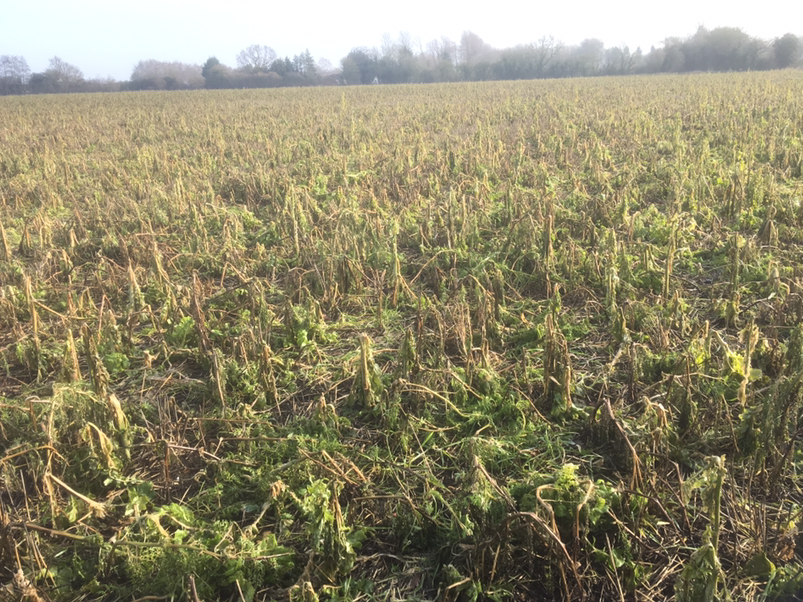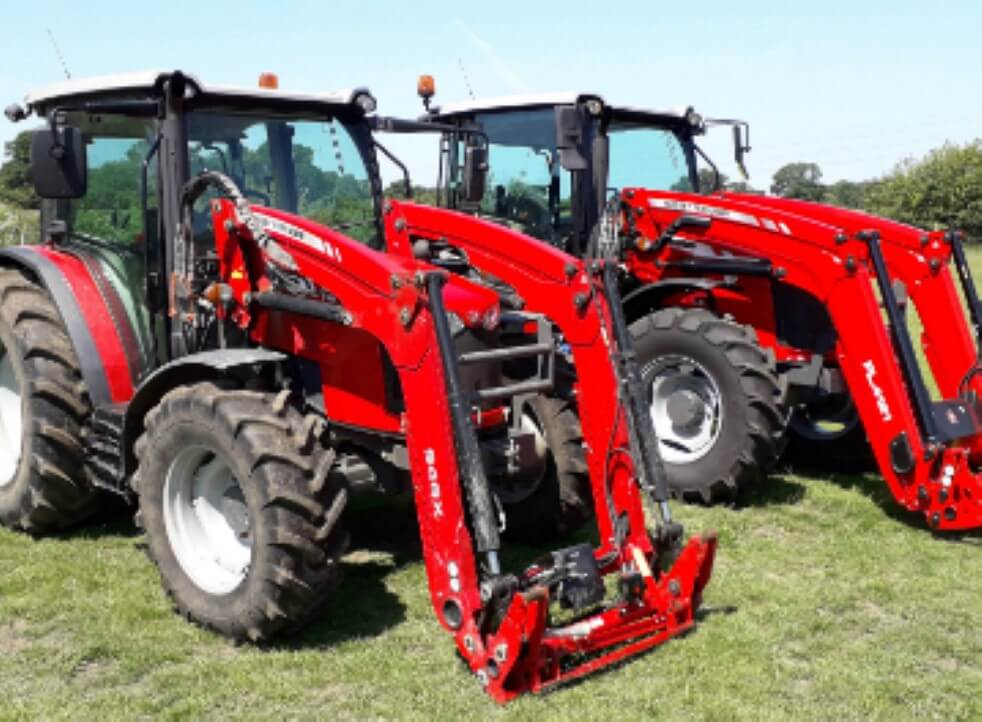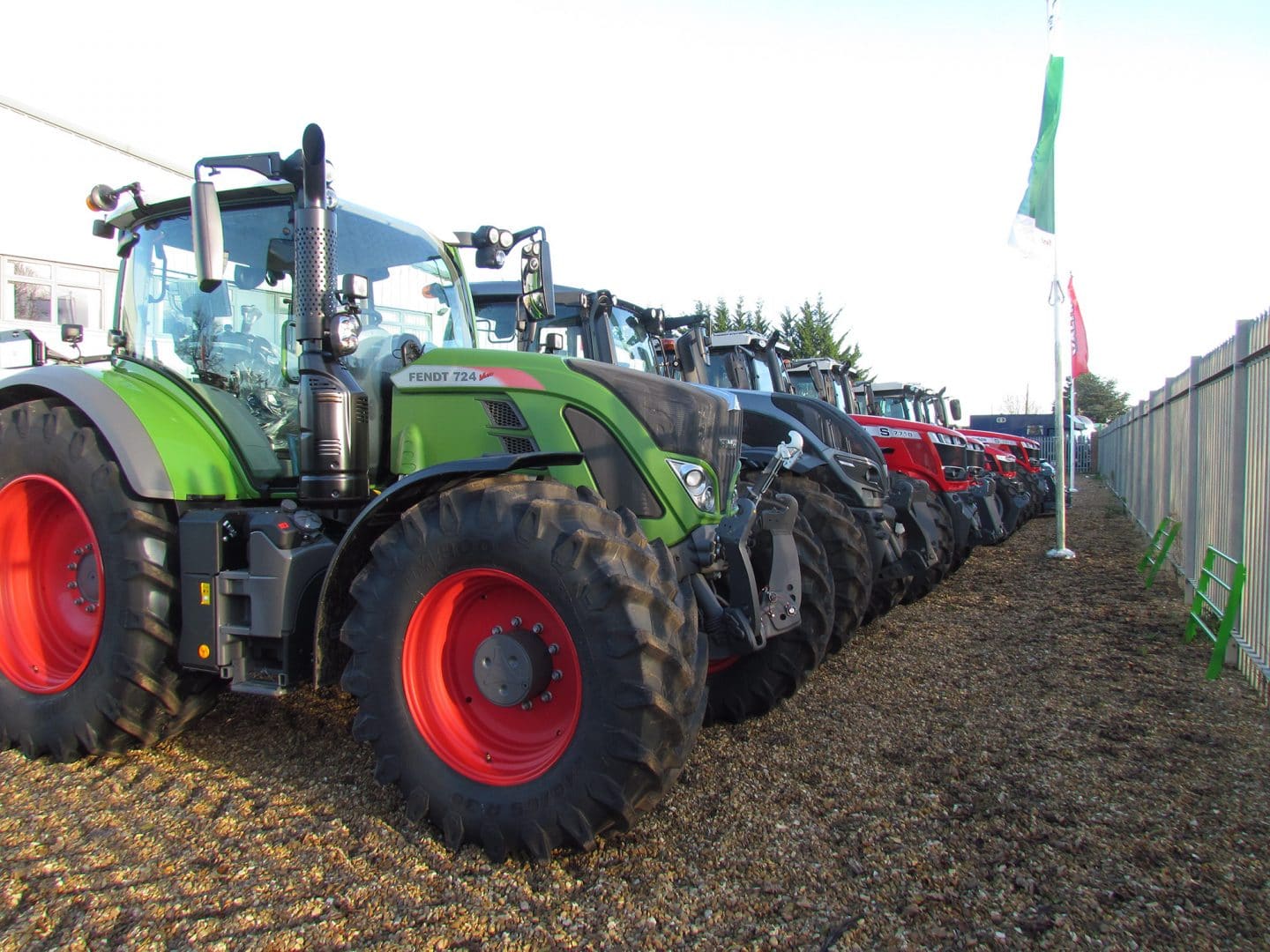
Customer testimonials
Read on for customer testimonials regarding some of our main brands including Massey Ferguson, Fendt, Valtra and Kverneland.
SUFFOLK FARM IMPROVES FLEET MONITORING WITH MF CONNECT
A fleet of 10 new Massey Ferguson tractors equipped with MF Connect is expected to improve fleet monitoring and reduce downtime for James Foskett Farms Ltd, in east Suffolk.
The family business, based near Woodbridge, specialises in organic and conventional root vegetable production. Crops include carrots, potatoes, sweet potatoes, butternut squash and onions grown in an extended rotation with cereals, green beans, sugar beet, maize and vining peas. The total farmed area is approximately 1,500ha which is a mix of owned and rented on FBTs and annual cropping agreements. Most land is within 15–20 miles of the base, but land rented for seed potato production can be further afield.
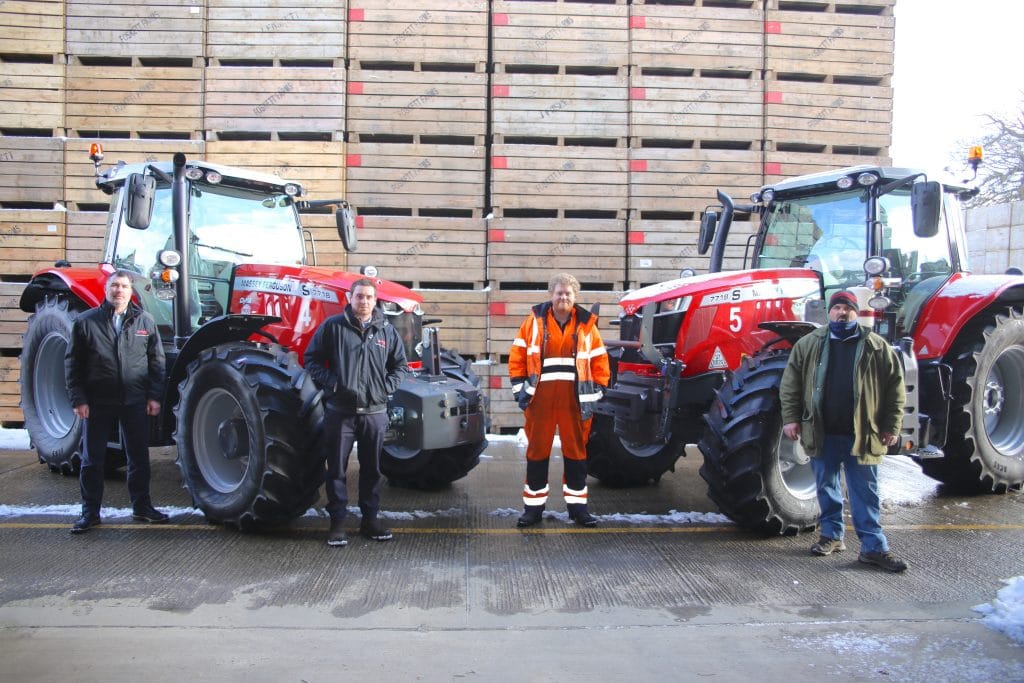
Massey Ferguson solution
“The wide variety of crops which includes approximately 220ha grown organically means we depend on a large fleet of 22 modern tractors,” explained Operations Manager Stuart Burch. “We operate three brands, but 10 are Massey Fergusons supplied by our local main dealer Thurlow Nunn Standen Ltd (TNS).”
Massey Ferguson tractors have dominated the fleet since the farm changed from another brand in 2016. “We looked at what was available from several local dealers, and the package offered by Thurlow Nunn Standen was cost-effective and we liked the Massey Ferguson tractors. We bought a 7726 and a 7718, and hired five 7718 Dyna-6 models for the 2016 season and the arrangement worked well.”
The current fleet consists of four 7719 Dyna-VT tractors – selected for precision tasks such as de-stoning, ridging and planting, plus five 7718 Dyna-6 machines and a 7715 Dyna-6, all from Thurlow Nunn Standen on a 2-year, 2,400-hour contract-hire agreement. There are also four Valtras and a Fendt – also supplied by Thurlow Nunn Standen, and seven older tractors of another brand.
“We recently renewed the two-year hire agreement without considering other options,” explained Stuart. “Massey Ferguson and TNS are very easy to deal with and the hire arrangement gives us similar flexibility to purchasing the tractors outright. Most require optional upgrades and those used for specialist applications have front linkage and PTO as well as uprated hydraulics and extra spools. We can select exactly what we need.”
MF Connect
The new tractors are the first with MF Connect telematics, allowing authorised users to monitor their operation remotely. TNS activates the system for every new tractor supplied, with the customer’s authorisation. “Until recently some customers were suspicious of the technology,” explained TNS Group Service Manager Darren Bantick. “That was partly because we didn’t realise all the benefits ourselves, but now we regard it like any other workshop tool used to identify faults and optimise maintenance scheduling – reducing downtime and improving our service. To me MF Connect is like a crystal ball allowing me to see exactly what’s happening inside the tractor, and to go back in time to see when faults first occurred and what the tractor was doing when they happened. This all contributes to an accurate diagnosis.
“There are many additional advantages for the customer too, including being able to check a tractor’s operating status and location as well as task progress, fuel consumption, hours worked and for fault codes from anywhere, and without needing to telephone the operator or visit the machine.”
Telematics becoming essential
The new Massey Fergusons aren’t the first tractors with telematics on the farm, but Stuart believes that their arrival marks the start of an era where it will be considered essential. “One of our older tractors has telematics, but because it was only one machine within such a large fleet there wasn’t much point using it day to day. We trialled an after-market fleet tracking system for a year, but benefits were limited as it didn’t monitor service requirements or assist fault diagnosis. Our four Valtras which were new last year all have a similar system to the new Massey Fergusons, and it’s been useful being able to check their working hours and locations from our smartphones. Luckily, the Valtras also show up on the MF Connect app, so we will be able to use Massey Ferguson system for the whole fleet. Our older tractors won’t show up, but as they work far fewer hours that won’t be an issue, and when we do eventually replace them, then telematics will form part of the specification.”
The farm’s Workshop Manager, Simon Pink believes that MF Connect will make his job easier. “Currently we phone or text each driver or visit the tractors to record the hours worked each week,” he explained. “This is to check servicing requirements and monitor total working hours, but having the information available on my phone will be more convenient and save time. The Massey Ferguson hire contract includes 1,200 working hours per year for two years, but some of our tractors work up to 1,500 hours. Being able to easily compare hours across the fleet will alert us if one tractor’s use is excessive so we can swap it with one which has done less to avoid additional costs.”
Reduced downtime
Remote diagnostics will also reduce downtime when technical issues occur, as the TNS service team can view fault codes as well as the recent work history, allowing fast, accurate problem diagnosis from their depot. The operator can be advised whether it is safe to continue working, but when more serious issues require a technician’s attendance then he can bring the required tools and correct replacement parts with him first time, and locate the tractor quickly using the system. “Many of our seasonal workers are from abroad and their English language can be limited, so for technicians trying to identify problems it’s much easier to look at a screen and fault codes than to attempt a diagnosis by phone. That’s also where viewing the tractor’s location on the screen is an advantage, rather than relying on spoken directions,” stressed Simon.
Stuart says that MF Connect will also assist fleet monitoring and work planning. “We can see at a glance the locations of all the tractors as well as the working bouts across the field giving an indication as to how jobs are progressing. Error codes and warnings are also visible on my phone, so even if operators ignore serious issues such as a blocked air filter or the engine overheating, I will know that attention is needed.
“There is also a safety benefit, particularly for operators working alone, as we can see on the app if a tractor has stopped working, or check its location if it hasn’t returned to the yard when expected. When we first trialled the tracking system some of the operators were suspicious of our motives, but they quickly saw its advantages and realised they had nothing to fear.”
Working more closely
As increased use of telematics reduces the frequency of phone calls and technician visits, some might fear that close working relationships between the customer and dealer could suffer. However, after experiencing the benefits of AGCO’s telematics on just a few of the farm’s tractors for almost a year, both Simon and Steve agree this is unlikely. “I think the opposite is true,” stressed Simon. “MF Connect will benefit us and the dealer, and we will find ourselves working even more closely.”
ARTICLE SUPPLIED BY MASSEY FERGUSON
Switch to strip seeding has been life changing
Switch to strip seeding has been life changing
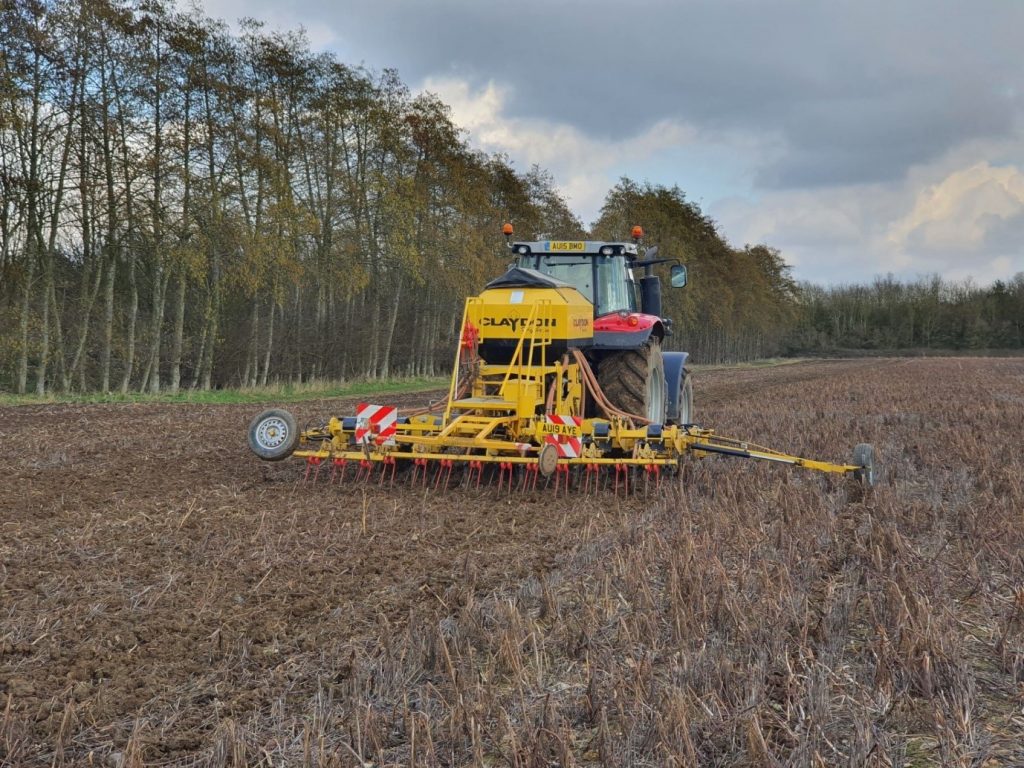
“Had we not moved away from using the traditional plough-power harrow-drill approach to establishing crops in favour of direct strip seeding then we definitely would not be in the position that we are today,” Norfolk farmer David Cooper states.
“The Claydon OptiTill® System reduced our costs by at least £40 per acre and without it the margins would not have been there to purchase a neighbouring farm which came up for sale in 2016. That made a massive difference to the business, so we are always pleased to talk about our experiences.”
The Coopers’ history with the brand goes back to January 2006 when they saw a prototype 3m SR drill, an evolution of the original V-Drill which Jeff Claydon had designed in 2002, on the company’s stand at the LAMMA Show. Two days later, after visiting the Claydon family’s arable farm and factory in Suffolk, they purchased the drill which had been on display.
Their SR became the first Claydon SR to be sold in Norfolk and the Coopers drilled their first crop with it a month later. Ever since then the Claydon OptiTill® System of crop establishment has been a cornerstone of the farming and agricultural contracting business which D. B. & A. Cooper operate from Rickwood Farm, Hockering.
After five and a half years of operating the SR very successfully the drill was changed in September 2011 to cope with an additional 400 acres which the business had taken on, but the Coopers remained loyal to the OptiTill® System, purchasing one of the then-new 4m Claydon Hybrid models.
“With contracting work, we now drill over 1000 acres a year. The only area not drilled directly with the Claydon is where, one year in seven, muck from Andrew’s 12,000-bird outdoor turkey unit is spread, ploughed and then we go in with the Hybrid.”
The land which the Coopers farm is mostly medium loam but includes everything from sand to heavy clay. Cropping currently includes 6-row winter barley, winter wheat, oilseed rape, naked oats, beans, and some spring barley.
“We use our Hybrid to drill all sorts of crops, from cereals to kale directly into grass stubbles with the Claydon LD Low Disturbance points. It also establishes cover crops of phacelia, oil radish and berseem clover or vetch, which are drilled in August at 5kg/ha, left to grow over winter, then sprayed off in January or February ahead of drilling spring crops,” David states.
“OptiTill® has made our heavy land much easier to work because the structure and worm counts have improved so greatly over time. In fact, I would say that the heavy land has become as easy to work as the light land. The benefits of using this approach are also noticeable on the lighter soils, which dry out very quickly if inverted. It does an excellent job of retaining moisture and because much of the land is left uncultivated the stubble and root structures are retained, this helps to prevent soil blows which are common in Norfolk where light soils are over-worked.
“The Hybrid will operate without any problems and we have even used it to drill directly into knee-high volunteer rape. It works well behind our 252hp MF 7626, which is much more powerful than Claydon suggest but we are often called on to operate in difficult conditions where farms have been unable to establish crops with their own drill, so we would rather have power to spare than struggle. The normal operating speed is a comfortable 10km/h and on our own land we use higher seed rates to encourage the crop to smother out any weeds.
“Four years ago, our winter wheats yielded 11.4t/ha, but the current five-year average is just under 10t/ha, lower than it would normally be because of the very dry spring weather during the last two years. Winter barley yields 8t/ha to 9t/ha, and the naked oats we grow on contract to GB Seeds normally average 6t/ha, but can produce up to 7t/ha, equivalent to about 9t/ha of conventional oats.
“The same 24m tramlines are used all the time because we see no sense in ripping them up each year. The only reason for that would be to take out deep ruts, but you don’t get those with OptiTill® because the soils are so supportive. That also allows us to begin spraying and applying fertiliser with our Sands 2000-litre self-propelled well before other farms where conventional cultivations are used.
“In our experience, Opti-Till® offers something for everyone, regardless of their crops, soil types and conditions, but it is important to understand that the full benefits will not be apparent in the first year. You will see cost savings, certainly, but it is really in the second and third years that they really start to become obvious. It takes a while for soils to change, but there is a continual improvement, and it is obvious where land has been Claydon drilled.
“There’s no way that we would want to farm without Opti-Till® because it has so many benefits. The next step could be to add a Claydon TerraBlade inter-row hoe, as the 4m version we had on demonstration last year worked well. Using a combination of mechanical and chemical methods to control weeds is a logical step forward.”
ARTICLE SUPPLIED BY CLAYDON
The right product from the preferred brand
Since the 1970s, Massey Ferguson products have dominated the machinery fleet of Norfolk-based farmers RR Basey-Fisher & Son. However, this is the first year that a Massey Ferguson round baler has been used, following a succession of Welgers.
The family farming business operates from two sites, at Carleton St Peter and Langley, near Norwich, and is run by George Basey-Fisher with his parents Richard and Enid, and his son William. Approximately 400ha is owned of which most is arable cropping including 15ha of marshland, with a further 105ha of the marsh used for grass. Until five years ago there was a dairy, but this was replaced by a 380-head beef fattening enterprise. Calves are locally sourced and breeds include Friesian Holstein, Limousin, Angus and Belgian Blue crosses. The Friesians are field-grazed but other breeds are indoor-reared and fed on grass and maize forage with home-rolled wheat and barley.
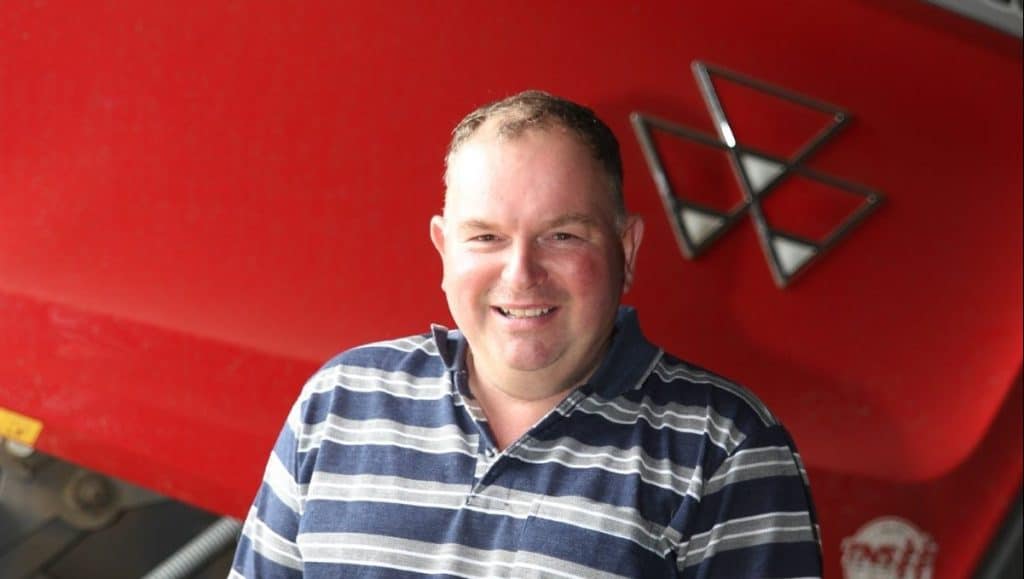
Apart from a few conventional small bales for young calves, all the grass silage and straw is round baled. For the farm’s own use, approximately 3,000 straw bales are made each year including wheat, barley and oilseed rape, plus 350–400 bales of silage. The farm also provides a silage and straw baling contracting service for neighbouring farms. Variable chamber balers are operated, as the Basey-Fishers use 4ft diameter bales for their own farm finding them easier to move by hand in the yard, whereas 5ft are preferred by several contract customers.
Trusted brands
The farm’s balers are updated every four to five years and, since the first round baler arrived in the early 1980s, the brand selected has nearly always been Welger. “We like Welger balers as they make good, uniform bales. They are easy to use and maintain, and in our experience they are extremely reliable,” explained partner George Basey-Fisher. “We have always looked at other options when upgrading, but Welgers were reasonably priced and we had no reason to change brands. Even those which were more expensive didn’t appear to offer advantages.”
Out of seven tractors owned, five are Massey Ferguson. A nearly new Massey Ferguson Beta 7360 PL combine has been purchased for this harvest, and other recent purchases include an RK 662 twin-rotor rake. “We are surrounded by good dealers for all the major brands, but we get on especially well with our local Massey Ferguson dealer Thurlow Nunn Standen,” continued George. “We have always depended on Massey Ferguson combines and we find the tractors reliable and easy to use so, when we are looking for new machinery, it’s the first name we consider.”
Proven design
AGCO announced its acquisition of the Lely Welger forage machinery division in 2017, and products were displayed in Massey Ferguson colours for the first time in the UK the following year, where they immediately proved popular. Thurlow Nunn Standen Product Support & Sales Specialist Ben Hockley looks after the Basey-Fisher’s account and he commented, “It’s great having an already established baler manufacturer brought into the Massey Ferguson portfolio. Welger’s proven track record with users across the country has enabled us to further develop our relationships with customers and bring benefits to their farming operations. Since Agco’s acquisition, we have already seen improvements to the balers’ designs, and with continued investment in research and development we believe the brand has an exciting future.”
“Our five-year-old Welger RP45 baler was due for updating this year, so last harvest we started looking at options,” explained George. “The Massey Ferguson RB 4160V variable-chamber model appeared the obvious choice as it had the Welger heritage we trusted plus back-up from Thurlow Nunn Standen and Massey Ferguson. However, choosing the best baler for our situation is important to us, so we looked at what else was available and had demonstrations of two alternative machines.”
George said that all three balers worked well and, although both of the other balers were considerably more expensive than the Massey Ferguson, there was nothing to separate them in terms of bale quality or work rate. He also consulted several local farmers already using similar Massey Ferguson models who all recommended the machines, so he placed his order for the new baler which arrived in time for first cut grass silage and hay baling.
Welger performance retained
“Massey Ferguson has kept all the features we liked so much about the previous Welger balers and improved on them,” added George, “and our new baler has several useful upgrades over our previous model including adjustment of most baler settings using the in-cab control box, rather than having to stop and get out each time. The new baler is also Isobus-compatible so we could operate it direct from the controls of our Massey Ferguson 7720 tractor, but as we also use the baler behind a smaller tractor occasionally which doesn’t have Isobus, we find it easier to transfer the control box from cab to cab.
“The wider tyres are also an advantage, especially on our marsh land where ground conditions are usually soft and wet. Maintenance is easier with central lubrication, and a one-piece side cover provides great access for checking and cleaning.”
Attractive package
A three-year warranty, and finance options which suit the farm were also considered advantages of the Massey Ferguson brand. “Compared to other manufacturers we have always found Massey Ferguson straightforward. Products come with what you expect and there are no hidden extras, and parts and repairs are reasonably priced. Previous balers have been updated every four to five years, but we will try to keep this one slightly longer, although we still expect it to hold its value well.
“I’ve always liked Welger balers, but I’m even happier now that they are part of the Massey Ferguson range with the back-up of my local dealer,” confirmed George.
Article supplied by Massey Ferguson.
Global solution for traditional farm
For a thriving Suffolk-based farming business producing top quality food from native breed livestock, Massey Ferguson’s Global-Series tractors are proving ideal.
Heath Farm Suffolk was set up in 2012 as a partnership between Katie Mitcham-Henry and Mike Phillips and is based near Bury St Edmunds. The business has grown from an original flock of 14 rare-breed sheep, and now includes over 300 grass-fed ewes, a herd of English Longhorn cattle, and Oxford Sandy & Black, and Saddleback pigs, plus turkeys, alpacas and bees. The business has won several major awards and was featured on BBC’s Countryfile. New ventures include a micro-dairy which is currently under construction and which will begin supplying premium quality milk later this year. All the livestock are kept in an environment which is natural as possible with maximum space to roam, and Katie and Mike maintain their belief that the best produce results from waiting patiently for livestock to mature, rather than rushing the process.
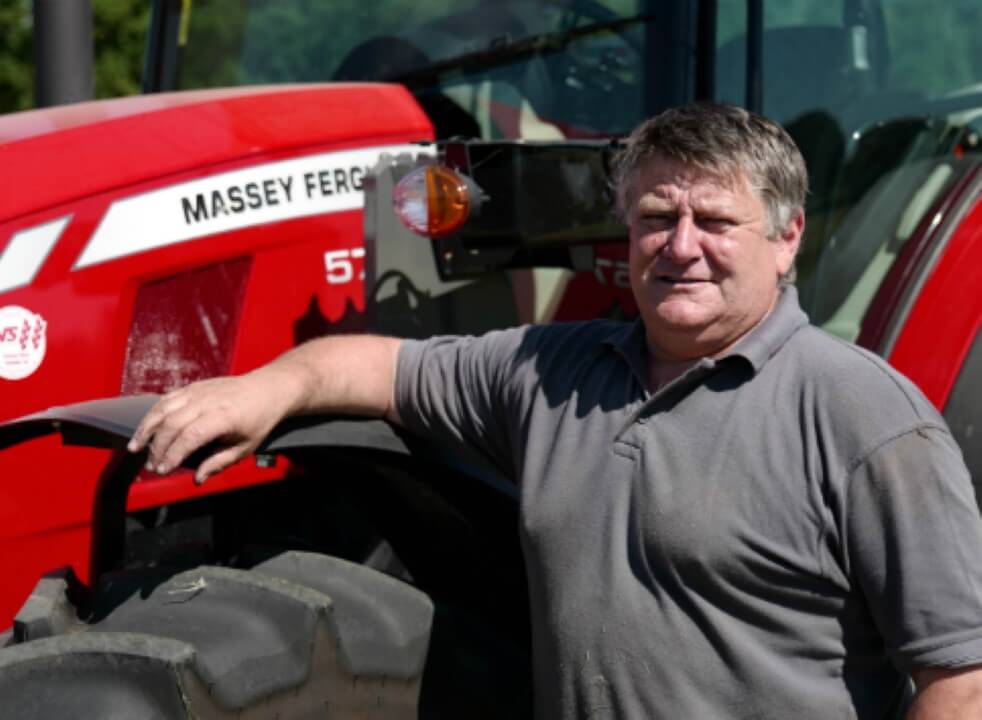
Approximately 40ha of permanent grassland is managed, much of it within ELS and HLS stewardship schemes. This provides grazing, forage and haylage, while additional feed including cereals is sourced locally. The livestock require a lot of straw which is also from nearby farms. An elderly 1990’s tractor with a front loader was relied on for all yard, field and transport tasks, but as the business grew the increasing workload meant something more efficient was needed, and in spring 2019 Mike looked for something suitable.
Safe, simple and reliable
“I wanted something simple and reliable, with minimal electronics and which wouldn’t require expensive repairs,” Mike explained. “It would be used every day, so it had to be modern, comfortable and safe.” Options considered included a three-year old 95hp Massey Ferguson 4709 with an FL4121 front loader. It had worked less than 4,000 hours and was available for a reasonable price from the local main dealer, Thurlow Nunn Standen (TNS). Mike arranged a demonstration of the second-hand tractor with Area Sales Representative, Richard King and was impressed by its comfort and performance. The tractor was ordered and arrived in time for the grass harvesting season and it did all the farm’s mowing, tedding, raking and baling, plus bale loading and transport.
During its 12 months at Heath Farm the 4709 was used daily, and its workload included mucking out, general trailer and yard tasks, and winter stock work delivering feed and bedding to the cattle. “It was ideal,” said Mike. “It worked approximately 800 hours and was much more comfortable than the elderly tractor it replaced. The modern design is excellent including a superb cab with great all-around visibility, and it is extremely manoevrable.”
The farm’s round baler is an elderly Welger RP200 and Mike said that although the 4709 completed the silage, haylage and straw baling season without incident, it proved a little under-powered. As bales were nearing completion and the baler required more power, he had to change down two gears each time to reduce the working load.
Extra capability
With the farm continuing to grow, Mike decided that investing in a new, more powerful tractor was justified, and another Massey Ferguson was the obvious choice. Again, he asked the advice of Richard King who recommended a larger 5710 with a 4-cyl, 4.4-litre engine developing 100hp and 410Nm of torque, to replace the 4709 which had a 3-cyl, 3.3-litre engine producing 95hp and 355Nm of torque. The new tractor was ordered and arrived in late May, part-way through the grass harvest.
Mike said that as well as having more power, the 5710 offers additional advantages. “It feels more refined during road and field work. The clutch operation is smoother and it’s a lot more comfortable. The visibility is better, and the wide rear window is great for yard and field work and provides a great view of the push-out hitch when backing up to trailers. With its extra power and torque, the 5710 is well matched to the baler and there was no problem maintaining a constant speed which improved work rates. I wouldn’t hesitate to choose the same again.”
Fixing costs
Mike was keen to fix his costs of ownership and took out a five-year service contract and an extended manufacturer warranty for the same period. “We don’t want unplanned expenses, so it’s reassuring to know that apart from fuel, and wear and tear we know what this tractor will cost us every month.”
By late September the 5710 had already worked more than 350 hours during which it proved completely reliable, and Mike said there are only two minor issues for the dealer to rectify. “Neither is urgent, and I’m confident that when the TNS engineers come to service the tractor they will be easily fixed.”
Further investment
Mike has been so pleased with his two Global-Series tractors and the back-up from TNS that he has also purchased a new Massey Ferguson mower, tedder and rake, replacing a previous brand. These were used behind the 5710 this season and, as well as improving work rates, they helped achieve cleaner, better forage. Mike likes his Welger baler and he commented that as Massey Ferguson’s latest balers are based on the proven Welger design he will definitely consider one in future.
Practical solution
“The Massey Ferguson 5710 offers all the same benefits as the 4709, but it’s a lot more capable,” Mike concluded. “Not many manufacturers offer simple, practical tractors with such a modern, user-friendly design but for a business like Heath Farm Suffolk, the Global-Series is exactly what’s needed.”
Article supplied by Massey Ferguson
Excellent service received
Farmer and contractor Mark Ellis says the excellent service he receives from Thurlow Nunn Standen is one of the main reasons his business remains loyal to the Massey Ferguson brand.
Trading as DAF Ellis & Partners and based at Upper Layham, near Hadleigh, Suffolk, Mark runs the business with his son-in-law who is also a partner, and employs one additional machinery operator during harvest. Three Massey Fergusons are operate, including two 7726 models and a 7720, all of which were purchased recently replacing two similar 7726 tractors and a 7620.
“My father brought a grey Ferguson in 1958 and since then we have always had at least one Massey Ferguson,” he explained. “Our tractors average 800 hours per year, and are usually updated every three to four years. They hold their value well, are reliable and we enjoy using them. Nothing is too much trouble for the TNS team – when a hydraulic pipe failed recently, the tractor was working again within 90 minutes.”
Service team always available
Farmer Gerald Western is pictured with TNS sales representative Tom Miller and one of the Fendt tractors displayed. Gerald’s family farm is at Brundish, Suffolk, and he also provides a contracting service locally. Three Fendt tractors used include a 930 Vario which was new in February 2019, a 724 Vario which was purchased four years ago, and there is also an older 820 Vario which has clocked up more than 10,000 hours. “We bought our first Fendt 926 in 1990, and have used the brand since then,” explained Gerald. “Anything else we have tried just doesn’t compare to the Fendt for the smoothness and efficiency of the transmission, and I know that neither of our two main operators would want to move away from the brand. The back-up from TNS is very good and we know that the service team is always available when we need them, and if faults occur they are diagnosed and corrected quickly.”
Norfolk farm awards top marks to Massey Ferguson
Jonathan Skinner is the current generation of his family to be running Booters Hall Farm, at Letton, near Thetford. Since the 1960s, Massey Ferguson tractors and implements have formed the backbone of operations there – and many of them are still in regular use today!
The current tractor line-up reads: MF 590, 690, 698T, 699, 3060, 3095, 7480, 7718, 7726 and 7726S. In addition, there's a 9380 Delta combine, a 9m hay turner, front and rear mowers and, seasonally, multiple MF 2270 balers.
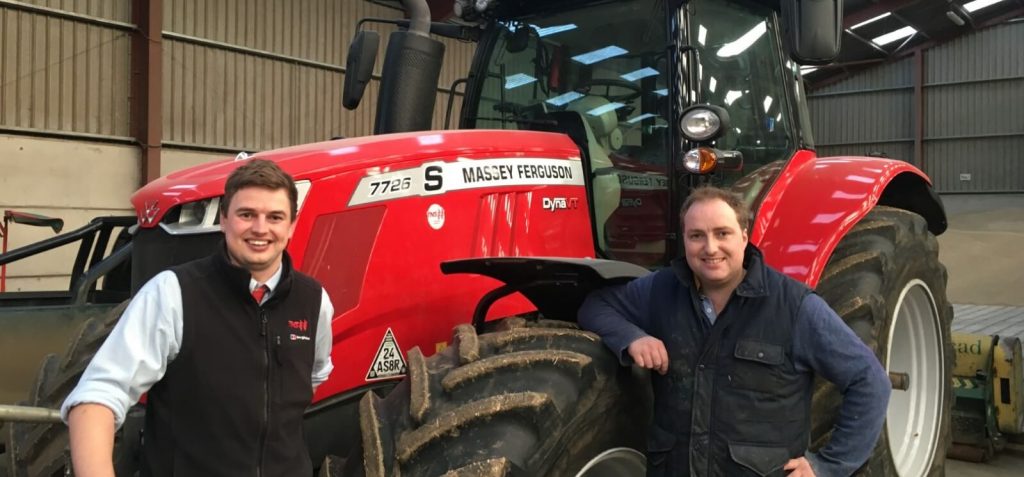
The business trades as Bures Farm Partners and is based on 2000 acres of both light and heavy soils. Sugar beet, fodder beet, wheat, oats, barley oilseed rape and rye form the normal rotation.
On the livestock side, there are 50 Bleu de Maine ewes, 12 Southdown ewes and 100 Millennium Bleu ewes, together with 30 South Devon cows, 20 Hereford cows and, in the run-up to Christmas, 130,000 free range turkeys. The staff line-up comprises four full-time employed and five self-employed, ranging from apprentice to 20 years’ service.
Jonathan is happy to be continuing the family’s long-standing allegiance to Massey Ferguson. “We’ve always been impressed with the qualities that MF machines have delivered,” he explains. “These include reliability, efficiency, useability and the dealer back-up we’ve always received. Oh..and my girlfriend likes the colour!!
“The core tractors that we have are on a five-year, 5000-hour warranty basis, at which point they will generally be traded in. However, some of them survive and stay forever!”
The older, retained tractors tend to be utilised on less demanding farm tasks, such straw shredding for the turkey business. “Having said that,” Jonathan adds, “my favourite job is baling hay using my MF 699 with a MF 20B baler that we’ve owned for 40 years.
“The MF 7718 is very adaptable for doing light cultivations and, with its MF front loader, is used to cart all our straw required through the summer months.”
The family’s long-standing relationship with their local MF dealership – Thurlow Nunn Standen, at Attleborough – has played a big part in maintaining their loyalty to the brand. “We’ve always had great service and back-up from the staff there,” he states, “and they always have a stand-in machine available, should it be needed.
Jonathan holds up TNS salesman and main point of contact Jolly Bullen as an example of someone who is willing to go the extra mile. “He will always have a hands-on attitude, in or out of hours, helping with any repairs and even driving the combine! That means a great deal to us.”
Content supplied by Massey Ferguson
A pair of MF Betas is the perfect solution on Suffolk estate
Massey Ferguson combines have been the harvest mainstay at the Ampton Hall Estate, near Bury St Edmunds, for the past 20 years. Ed Turner, who looks after the estate's farming interests, along with his brother Ben, believes this is mainly due to Massey's constant quest for improvement.
“They have been good combines throughout that time,” he states. “Over the past six or seven years, however, we've used a pair of Betas, which have taken us a big step forward. They replaced Cerea combines, which were slightly larger.
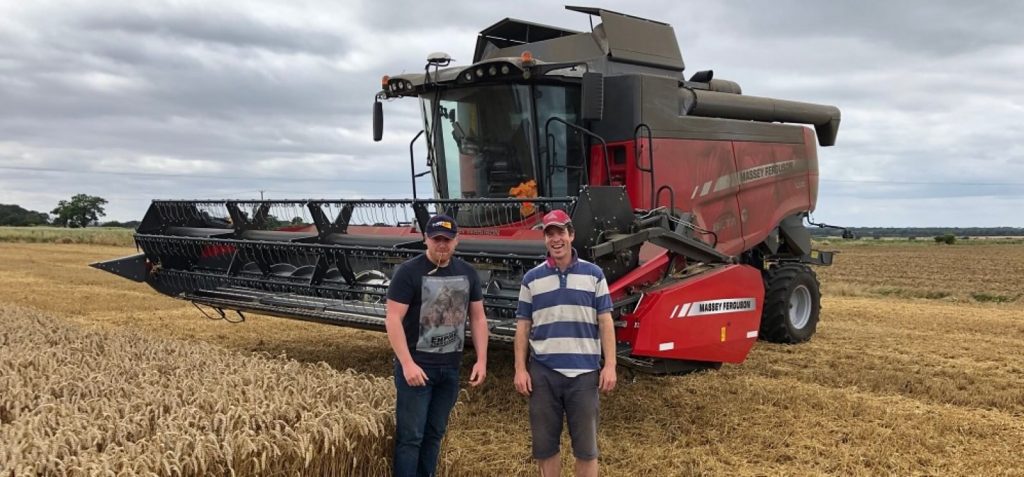
“We’ve found that having two smaller combines suits us better, giving us more flexibility. And, if one is out of action for some reason, we can still keep the wheels moving. They are more economically viable, too.”
The Ampton Hall Estate extends to around 5,000 acres, of which about half is farmed in-hand, and is largely light-to-medium land. Barley, oilseed rape, wheat, rye and sugar beet form the basis of the rotation, while the remaining land is let out for potatoes and onions, together with two pig unit lets, and includes woodland and a long-term tenancy. The workforce comprises two full-time and one part-time staff, with Ed and Ben both very much hands-on.
One of the most noticeable improvements they’ve seen in the Beta, compared with its predecessors, is the cab. “This has been one of the biggest differences,” Ed states. “It’s a lot more spacious and user-friendly generally. Being able to view the full width of the table is a major plus.
“The joystick is very easy to use and has everything within comfortable reach. The screen is excellent, well laid-out and very simple to change settings at the touch of a button. Having the camera on the back is a real boost, too, as it means you’re not having to rely wing mirrors – which are often covered in dust anyway!”
Another area where significant strides have been made, Ed feels, is in the machine’s daily maintenance requirement. “Years ago, you would have to spend a full morning greasing the machine,” he recalls, “but now the nipples are all on a few banks in set positions on the combine, which means that you know exactly what needs to be done each morning.
“Greater accessibility has led to down-time being halved, which, in turn, means you can start cutting earlier. We’ve found the fuel efficiency to be excellent, too, running at about 11 litres a hectare this year.” The greatly-improved, all-round lighting on the Beta is also appreciated, particularly, allowing safer, longer working when the nights begin to close in, Ed comments.
Pushed to identify any Beta feature that might be improved upon, he can only think of the in-cab fridge: “It’s not very cold….and access to the door from the driver’s seat is not great.” Message received!
Ed’s nearest Massey Ferguson dealership is Thurlow Nunn Standen, at Hinderclay, about 15 miles distant. “We have a very good relationship with them and they are always on the end of the phone if we need them,” he says. “If it’s ever required, they will have someone with us within the hour.
So, how is the estate’s 2019 harvest progressing (in the second week of August)? “Well, it’s looking a lot better than last year,” Ed reports, “and so far our yields have been encouraging. Long may it continue!”
Content supplied by Massey Ferguson
Dirty water management system brings home the bacon!
Safe, efficient and compliant dirty water management clears the way for high quality pork production on Norfolk-based farm
John Nurse runs a pig finishing enterprise, some eight thousand head at a time. The pigs arrive at the Harleston, Norfolk-based farm around 7kg - normally three-to four weeks old - and finish out at around 20 weeks with typical finishing weights of between 100kg - 110kg. The animals are housed in large straw yards with scraper passages to maintain cleanliness, good health and ease of stock management. Every 8-10 weeks, each yard is thoroughly cleaned and washed down ready for the new interns. Naturally, there is considerable ‘dirty-water’ from the run-off and liquid waste that needs to be managed and handled efficiently.
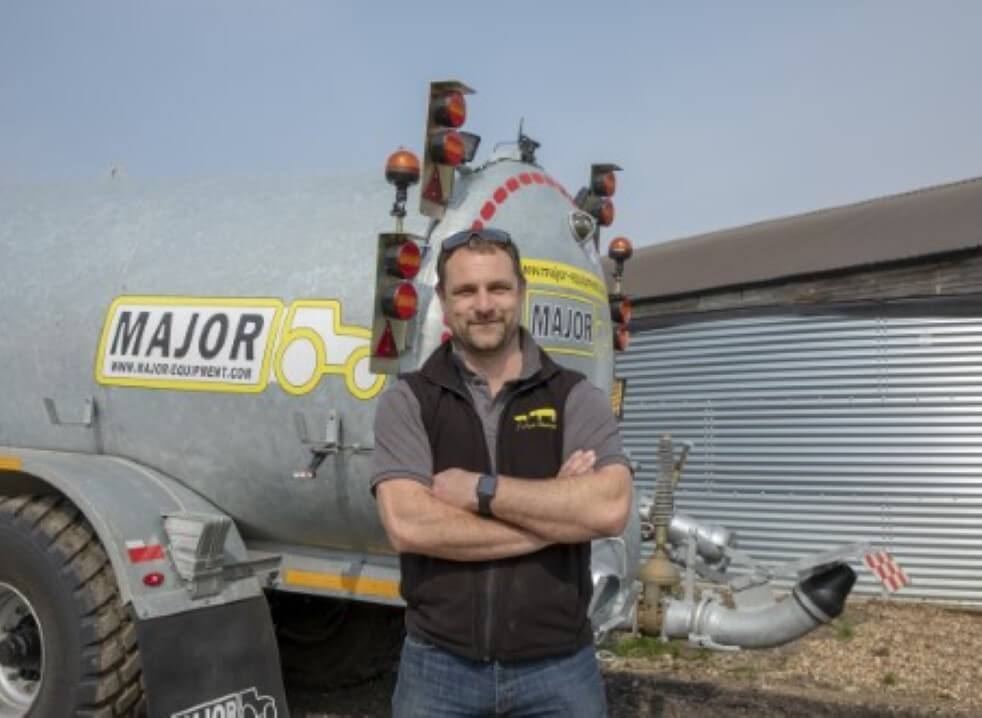
John has an on-going contract to finish pigs for a major wholesaler and he has garnered a serious reputation for quality, cleanliness and environmental management. “With the size of operation here we are fully compliant with the Government’s strict IPCC regulation, or Integrated Pollution Prevention Control,” comments John. “It means we have to follow very specific guidelines to manage the effluent and dirty water that comes from a large number of animals. We collect all the liquid waste and surface run-off and recycle it to local farmland to help improve soil fertility. Our old tanker system was taking too much time and energy and so we had to look at how we could improve the efficiency of the system.”
John looked at several slurry and dirty water tankers on the market to evaluate what would work best for him and what would give him the best return on his investment. Durability and performance were important. But ABS braking, manoeuvrability, road stability and easy operation were critical. He was going to be on the road a lot, carrying heavy loads in and out of farm gates so a safe and efficient system was paramount.
“I discussed my needs with my local machinery dealer, Thurlow Nunn Standen (TNS), and they brought in a specialist from Major Equipment who manufacture high quality agricultural tankers,” continues John. “As I wanted to invest in something that would last me a long time, there were specifications that were going to be important for my business and I wanted to make sure I got it right from the start. The first thing that appealed to me with the MAJOR tanker was that it was galvanised inside and out. Also, the tank system was mounted on a separate chassis, which makes it more durable, particularly as it would be working in a somewhat caustic environment.”
Besides ABS braking, John was looking for a rear-steer axle, high-capacity, side marker lights, extra high-line lights, and marker tapes – very similar to what they use throughout Europe.
“My farmer customers are located at quite a distance, some thirty miles round trip,” commented John. “Road safety specifications are very important to me. Manoeuvrability is a big point also. I need to get in and out of small field gates so the rear steering axle was an absolute necessity. I also needed extra road lighting and ABS because safety is paramount. When I discussed it with my rep Ben Hockley from TNS and James Cox from Major, it was almost like they couldn’t do enough for me. Everything I wanted, James said he could do it and I felt very comfortable that here was a manufacturer who really knew what he was talking about. I even gave him a short deadline delivery date and he wasn’t phased by it. In fact I ordered a full specification, 4000 gallon, tandem axle tanker and it was delivered exactly when I wanted it, just before Christmas! I was impressed and I still am impressed!”
The old 2500 gallon tanker system used to take a week to clear the backlog of dirty water, the MAJOR 4000 Tandem Tanker takes just a day and a half. He uses a splash-plate application system on his customers’ fields. “I now feel that I have a very reliable and efficient dirty water management system,” said John. “I took my time to research the market and not everyone could supply the high-end specification that I needed. But I do think I have found the best value for my investment. The galvanised and very strong design of the Major tanker on a tandem, steerable axle gives me long-term reliability and a lot of flexibility with my customers. The ABS is icing on the cake. Because safety is my responsibility and is important, particularly with the amount of road we cover. I definitely made the right choice! I can now get down to what I am best at, producing high quality pork for my customers,” he concluded.
The Mighty Cyclone crushes crop stubble and competition
Major Cyclone offers strength, stamina and value for fifth-generation farmers in Saffron Walden
Peter and Sian Wombwell run Wombwell Farms based at Rectory Farm in Ickleton, near the market town of Saffron Walden, with their two sons, William and James. The farm and farm contracting business cover some 3000 acres bordering south Cambridgeshire and north Essex, of which 150 acres is grassland under various grazing agreements. The fifth-generation farming family operate an arable regime of sugar beet, oilseed rape, winter wheat, winter barley, spring barley and stubble turnips, the latter used to feed around 3000 store lambs through the winter. Plans are underway to develop a small Angus beef herd and they have a thriving pumpkin business as well. As contractors, they provide combine harvesting, drilling, spraying and cultivation services for farms within a 12-mile radius of home.
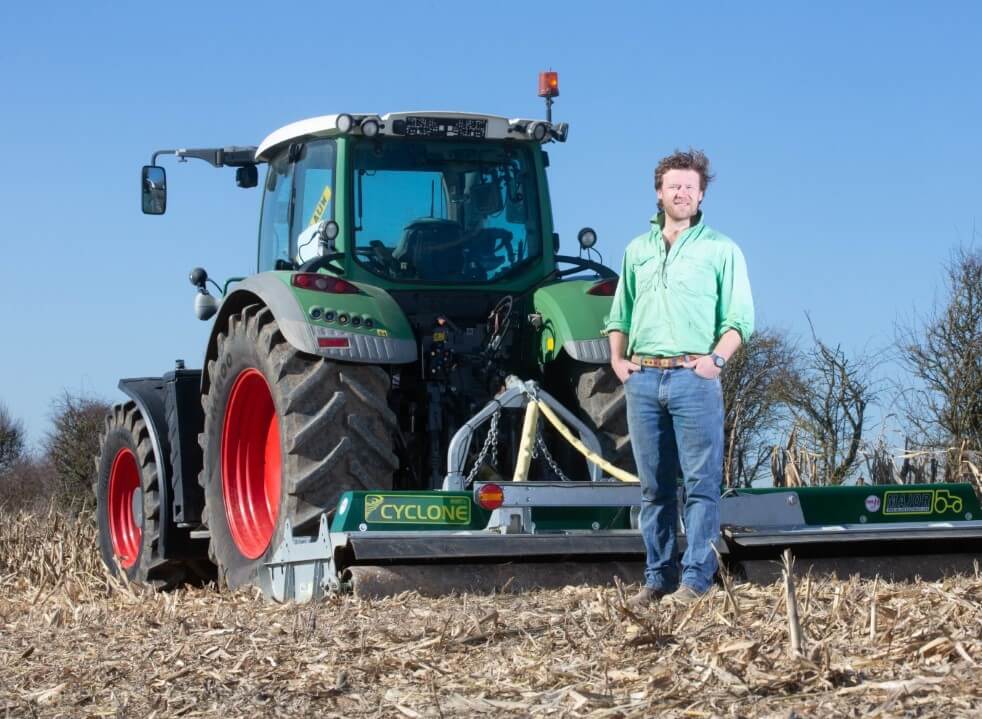
“We run under the HLS scheme and are very conscious of being environmentally responsible,” commented Peter Wombwell. “We maintain the margins by regular topping and have just recently gotten into recycling food waste from a local AD plant.”
The family had been using a flail mower to stay on top of stubble clearance, grass maintenance and margin control under its diverse cropping programme. When it came time to replace the expensive machine, Peter initially considered a batwing mower: “I started looking for a second-hand batwing topper but there were very few around and very expensive. Most second-hand machines were pretty much knackered anyway, so it was a bit of a dilemma!”
His local dealer Thurlow Nunn Standen (TNS) suggested the Major Cyclone for his needs, because in their experience, it does a much better job than a flail topper and is far more cost-effective with its shaft-driven driveline. “They brought out a demo unit for us to try. We were very impressed with its performance, so much so that we bought one,” added Peter.
The Wombwells purchased the Major Cyclone in 4.2-metre cutting wide. The folding wing topper has six rotors with 4 blades per rotor for powerful ‘blender-style’ mulching – perfect for shredding crop residue – but with 30% less HP required than a similar-sized flail. Cutting rotors are spaced two-and-a-quarter feet apart, doubling the number of heads found in batwing mowers to ensure any material is cut cleanly and evenly spread with no windows.
High-performance Strenx™ 700 MC structural steel makes these mowers stronger yet lighter than comparable-sized machines. Hardox® 450 abrasion-resistant steel undersole discs protect the blade system while the mower is working. Combined with hot-dip galvanisation to EN ISO 1461:2009 specifications, the Cyclone is guaranteed impact tough.
“We bought the Cyclone about a year ago and it’s proven to be a very wise choice,” commented Peter. “It handles all kinds of material – we’ve used it on maize stubble, cover-crop, grassland, and one particularly difficult application down the tramlines in oilseed rape; it just whizzed over that! Some of the plant breeders have trial plots situated on our land so we have to clear stubble effectively. The Major Cyclone makes short work of that task.”
“It’s very strong, reliable, very well built, low maintenance, and easy to use. It cost less than a used batwing, hardly has any maintenance costs, and takes a lot less fuel to power it – I really like it,” Peter enthused. “I’m pleased TNS made the recommendation because it’s turned out to be the perfect solution to all our topping and maintenance needs.”
Establishing crops in an efficient manner with Kverneland
Kverneland products have been used at J M Harcourt's Church Farm, near Holt, since the 1990's.
The farm has about 400 acres down to crops with 75-80 of these acres being sugar beet; the remainder is cereals, oilseed and beans. An area is also let for a pig unit and several acres of grass.
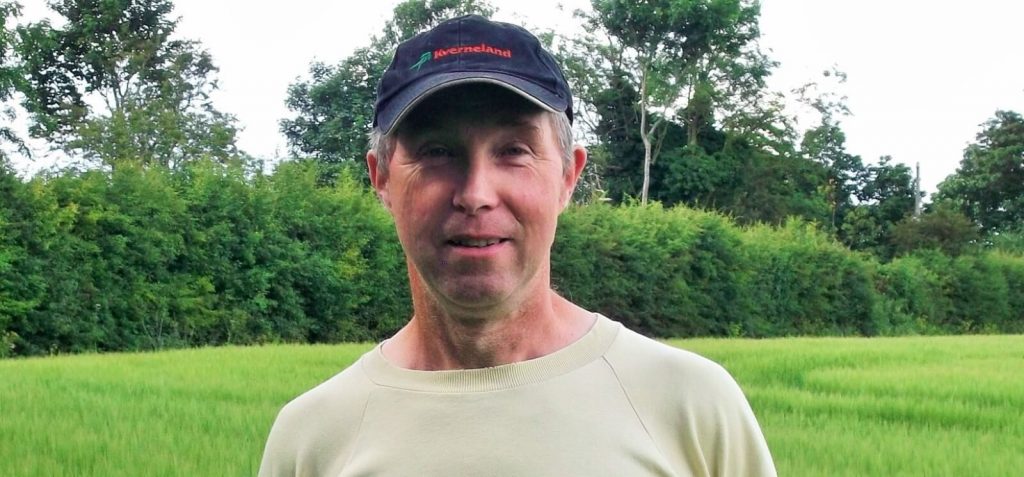
The first Kverneland plough purchased was a 3 furrow LD85 in the early 1990’s. George Harcourt explains: “Kverneland already had a good reputation in the area and we purchased the LD85 to improve the quality of the ploughing. With a good furrow press this improvement allowed drilling straight onto the ploughed and pressed work. The plough could be adjusted as necessary for slopes, hills and varying soil conditions.”
Skip forward in time and Kverneland products are still working on the land. Getting beet drilled in the ideal window ensures a good start for the crop and is a critical time – things need to go to plan without breakdowns, so the decision was taken to purchase a new beet drill with a neighbour, to share the machine and cost. The 12 row (electronic) Monopil drill was purchased three seasons ago. The electronics are fully and comprehensively integrated into the machine, allowing control and monitoring of every seed. Initially an older tractor was used with the drill but more recently the drill was matched with a tractor with Isobus.
George adds: “Drill technology has moved on and it is only since we have had the drill that this fact has been realised. Although the basic parts of the drill appear similar, it has been vastly improved mechanically. The drill was ‘plugged’ into the tractor with Isobus and it worked exactly as it should – although I understand more is possible. Autosteering and drill unit auto shutoff are avenues to explore in the future.”
A recent addition to the farm has been a Kverneland TS drill. George continues: “Our aim has been to establish crops at the ideal time in an efficient manner. The TS drill offers tines and plenty of clearance (stagger), it is simple to calibrate, fill and is easy to pull (4m drill with 125hp) and the clodboards/leveller works well for us.”
George adds: “We have been trading with the Eagle Iron Works depot at Sculthorpe ever since I can remember, the convenience of having a dealer close by is a definite benefit to us.”
MF 3710 F tractor takes blackcurrant production to the next level
An MF 3710 F (Fruit) tractor is at the heart of a strategy to further mechanise the production of blackcurrants at the 800ha Bradenham Hall Farms in Swaffham, Norfolk.
“Historically, we have planted our blackcurrant cuttings by hand from December to February,” says David Pike, Farm Manager. “Now with the help of the MF 3700 F fitted with GPS RTK auto-steering and equipped with a new mechanised planter, we’re aiming to reduce that planting period from three months to three weeks.”
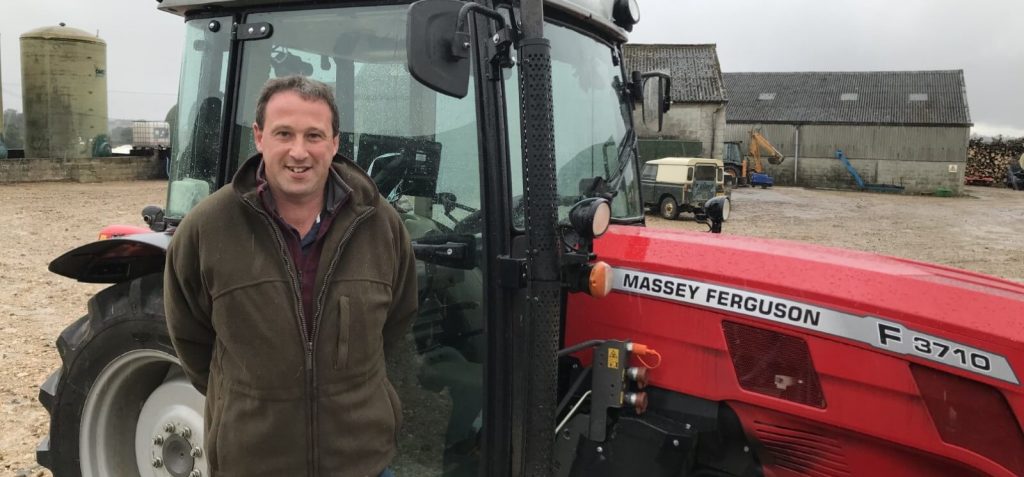
Bradenham Hall Farms has been growing blackcurrants since 1952 and is one of the country’s biggest producers. Today, it has 130ha under production and this year’s yield totalled 450 tonnes. The entire harvest goes to Ribena to make its famous soft drink (as does, incidentally, 90% of Britain’s blackcurrant crop.)
“Blackcurrants have a reputation as one of the easiest crops to grow but they are very time-consuming. Every day of the year at least one or two people are doing something that’s blackcurrant-related here!” David remarks.
The 110hp MF 3710 F tractor, delivered at the end of 2018, is part of a policy to renew and expand Bradenham Hall’s existing machinery fleet and reduce the reliance on casual labour.
“I’ve always found our local MF dealer TNS very helpful and we talked over what we wanted with them,” comments David. “We tried the MF 3710 tractor, liked it and bought it.”
The farm’s 1.5m-wide model comes with MF’s ‘Efficient’ package featuring a 24/12 Power Shuttle transmission, up to 120 litres/min hydraulic flow with two rear electronic spool valves, a mid-mounted spool valve plus an electronic rear linkage and electronic linkage levelling. David also opted for fully-integrated factory–fitted front linkage and PTO.
Along with the soon-to-arrive planter plus another new piece of kit – a mechanised scythe – the MF 3710 works with a front-mounted finishing mower, a topper and a fertiliser spreader.
The blackcurrant bushes are planted 30cm apart with 3m between the rows. “Grass is grown in the alleys to encourage beneficial insects (for example to eat vine weevils) and to absorb moisture and, thus, create a drier surface for the machinery and workforce,” explains David. “The tractor cuts this grass around half a dozen times a year with the vari-width mower.”
Bradenham Hall is highly-committed to countryside stewardship and the MF 3710 F is used with the 3m topper to manage the 8-metre margins around the blackcurrant fields before the hedges are trimmed.
“The tractor is easy to use and operator-friendly especially with its electronic controls. The spool valve finger switches are handy and the shuttle lever is very smooth for moving between forward and reverse,” David adds. “The fact that the driver can disengage the drive and change gear without having to use the clutch makes things a lot easier. It means less effort and is less tiring. The cab is good and you can happily sit in it all day. It’s got great visibility too and we like the air-con and radio.”
Transmission controls on the MF 3700 Series are situated on the gear lever allowing the operator to select neutral/forward/reverse and high/low on one lever for improved control. The driver can take advantage of eight clutchless ratio per range. The 24/12 Powershuttle version has a unique joystick-mounted transmission button which groups clutch, transmission and implement function into one easy control.
“As well as carrying out our traditional tractor jobs, the MF 3710 F is going to take on a lot of our hand work,” David sums up. “Equipped with the new planter and GPS auto-steering, we’ll be able to create an accurate line when establishing the blackcurrant bushes and use that as the foundation for all our mechanised work. We’re looking forward to the arrival of the new implements and transforming the way we do things.”
Content supplied by Massey Ferguson
Fendt - the master of the job
Richard Gay of Mautby Farms, near Great Yarmouth, works three Fendts on the 1000 acre farm. With a mix of sugar beet, wheat, barley and rape on the land, his tractors have to demonstrate versatility.
Fendts have been a feature on the farm since 2011 with the 722 being the first one purchased. The 722 is the main drilling tractor, from working down sugar beet land and cereal drilling through to fertiliser spreading and trailer work, the 722 is put through its paces.
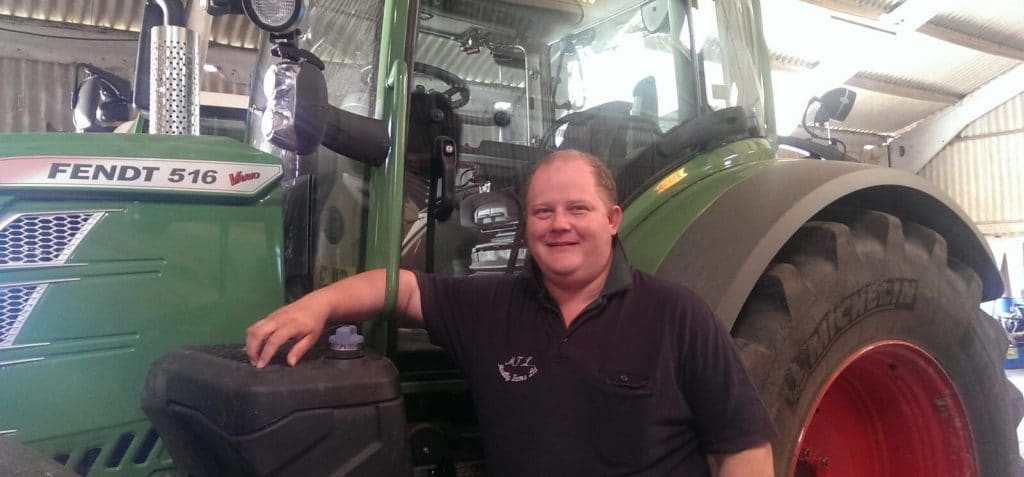
The Fendt 828 was selected for the higher HP for the heavy tillage work – to be the master of the job. The 828 also pulls its weight with ploughing and cultivating and has been the heavy weight on the farm for the last year.
Richard explains: “We had previously used a variety of other brand tractors on the farm but have found the Fendts to perform well and have decided to stay with this brand.
“The third addition to the Fendt fleet is the 516. We decided to go with this model because we wanted something more light weight and yet a tractor that could still perform well in multi use; we purchased the tractor following TNS’ recommendation.”
Another advantage to the 516 is it is compatible with the inbuilt GPS. Richard operates one GPS unit which is swapped between the tractors. The 828 makes use of the GPS for a variety of tillage jobs, the 516 for cultivation and sugar beet drilling with the 722 gaining benefit with the main cereals drilling.
Richard adds: “The service we receive from TNS is very good, Philip Goss, the Service Manager at Attleborough, is very knowledgeable and helpful.
“We’ve used different brands of tractors over the years but we’ve settled on Fendt as our brand of choice and we’re very happy with that decision.”
Massey Ferguson - reliable, economical and exceptional performance
Paul Gunther of Paul Gunther Contracting, Taversham, near Norwich, has operated Massey Ferguson tractors for a number of years.
When asked why he uses Massey Ferguson tractors, Paul Gunther replies: “They are reliable, economical and perform exceptionally well in all my contracting and farming applications.”
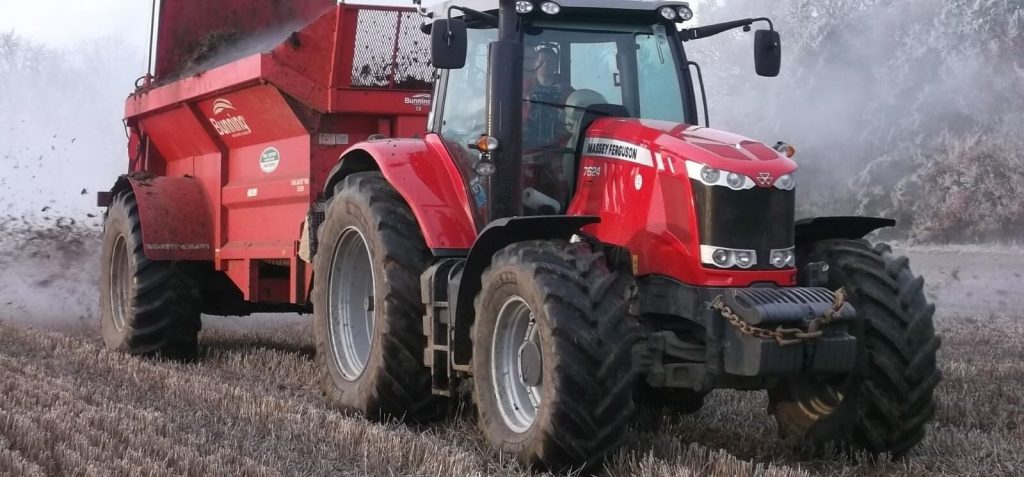
Paul who previously used different makes of tractors for many years decided to have a change and tried different options. He opted for Massey Ferguson because of the simplicity of use and the ability to deliver market leading performance.
He explains: “When assessing the different performances I found I liked the simplicity of the Massey Ferguson engine rev pre-sets. I liked the idea and found that the tractor performed well with good accuracy.
“The men liked the performance and especially the comfort of the Massey Ferguson tractors, we do some long hours!”
In 2008 Paul bought three Massey Fergusons and has since added eight MF6499s, with a MF7619 and two MF7624s joining the fleet. A MF3080 yard tractor and MF20B ‘hobby’ tractor are also much used and loved.
Paul likes the Massey Ferguson brand so much that he had six new muck spreaders sprayed Massey Ferguson red with grey wheels to match.
He adds: “When you find a good, reliable, make of tractor and a company you can rely upon, it gives you peace of mind to know you have the invaluable support you need to keep your tractors and business on the move.”
Modern, sophisticated and reliable
These are the words Colin Barrett of Rosewood Farm, near Melton Constable, uses to describe their Fendt 720.
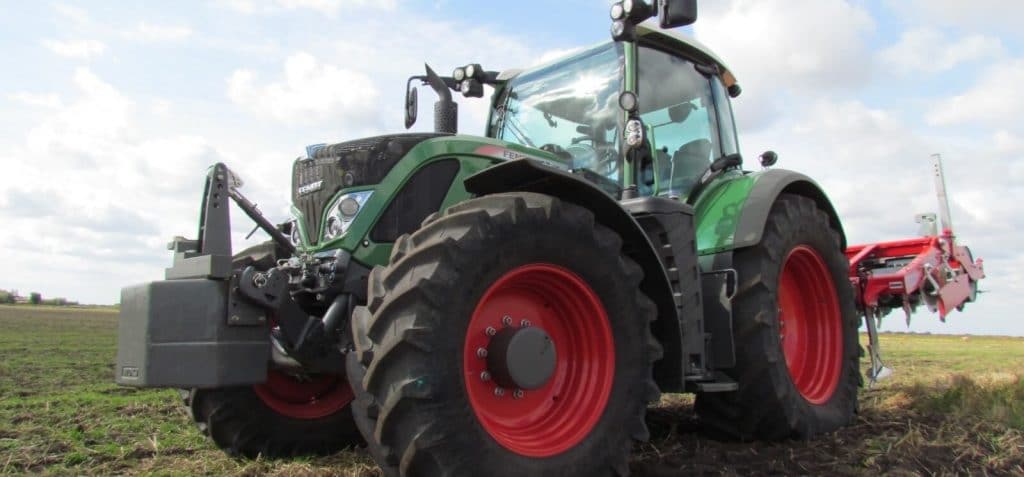
Colin explains: “Our Fendt 720 is the only large tractor on the farm, so we need total reliability, however, we know that should we need assistance, the Sculthorpe branch will do everything they can to help us – the service we receive is excellent.”
Fendt tractors have been running on the farm for four years and the 720 is the second Fendt to be used. Rosewood Farm has 300 acres plus an additional 100 acres of rented land and Colin engages in some contracting work – and this is where the versatility of the Fendt comes to the fore.
Colin adds: “The Fendt is so versatile, it does everything from light cultivation and heavy cultivation through to drilling, baling and mowing on the farm. We opted for a new tractor because we wanted a modern, sophisticated and reliable machine – and that is what we have found in the Fendt.”
Contract work includes full cereal operations as well as all grassland requirements from establishment to harvesting. From pulling a 16 tonne grain trailer on one day, through to sub-soiler work, ploughing or drilling the next – the Fendt excels in all areas.
Colin summarises the performance of the Fendt: “With the 720 we have the compactness you would expect from a small tractor, with the HP and performance of a large tractor, it really is the complete package for us.”
When something is described as amazing, it's worth taking a look
William Easton, of F H Easton Ltd, farms 2000 acres near Bunwell, Norwich. Crops are predominantly wheat, oil seed rape and sugar beet, with Triticale planted after the beet.
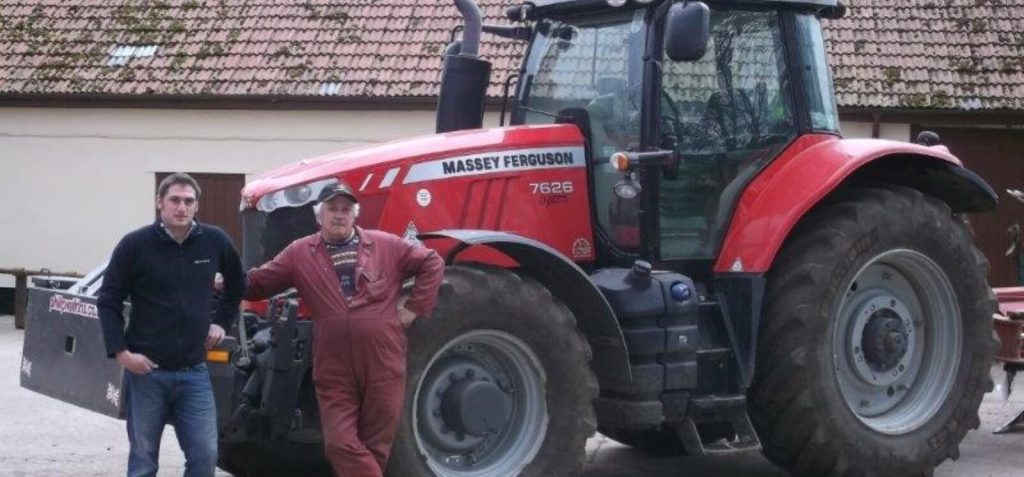
The farming enterprise works in tandem with the family-owned haulage company, which is also involved in agriculture. Massey Ferguson tractors have been used for four years – two MF6499s are on farm and a MF7626 was added to the fleet last harvest.
William explains: “We choose Massey Ferguson because of the reliability. However, we quickly discovered that one of the major advantages of the MF7626 was the amount of torque at low revs. We got on so well with the MF7626 that we decided to order another one.
“We previously used to plough 75% of the farm with another tractor brand, however, it wasn’t capable of achieving the ploughing that the MF7626 can do. The MF7626 can do more work for 100hp less, and operate in conditions the other brand couldn’t manage.”
William adds: “It’s amazing what the Massey Ferguson MF7626 has done for us, and that is why we chose to order another one.”
Massey Ferguson - Quality, support and value for money
These are three reasons why Ian Forman, Farm Manager at Keith Farm Partnership near Fakenham, Norfolk, chooses to buy Massey Ferguson from Thurlow Nunn Standen
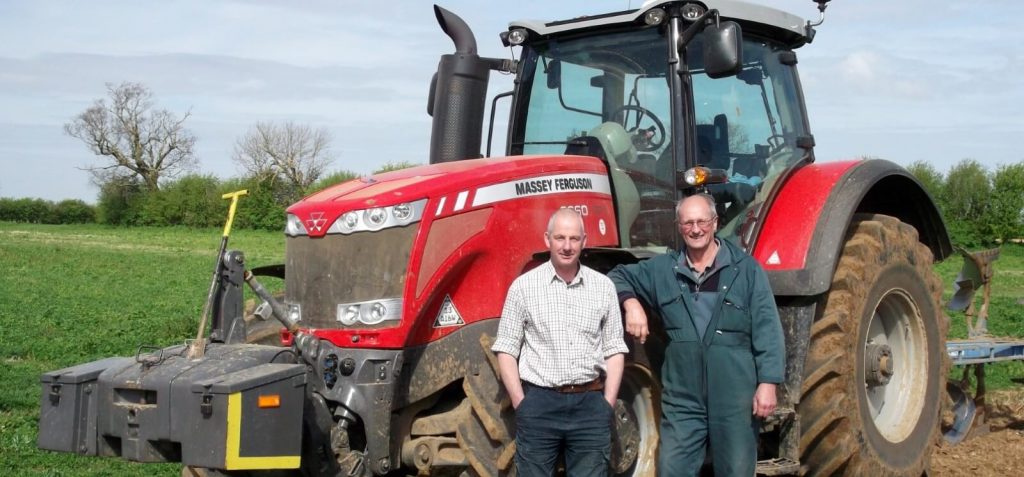
Keith Farm Partnership added another Massey Ferguson to their fleet in March 2014 with the introduction of a MF8660. The impressive MF8660, 8.4 litre, 6 cylinder turbo/intercooled e3 SCR engine adds some muscle power with it’s Dyna-VT transmission. Ian explains, “The driver tried three different brands of tractors and the Massey Ferguson was his favourite. We found the price of the MF8660 extremely competitive and these were two of the factors that prompted us to buy the tractor from TNS”.
Another factor was the knowledge that the Thurlow Nunn Standen Sculthorpe branch is so close to the farm, something which Ian describes as ‘handy’. Ian added: “We have been working with the Sculthorpe depot for many years and continue to work closely with the TNS team. Knowing they are on call just down the road should we need anything is very reassuring.”
Keith Farm Partnership have farmed with Massey Ferguson since 2008 and have had MF6480s and MF6499s working on the farm during that time. Ian describes the tractors as “very good – we’ve got on very well with them”.
So, why choose a Fendt?
Bill Legge, of A L Legge & Son Ltd, has owned Fendt tractors for 30 years, with 29 tractors covering that time span. At the time of writing, they work 10 Fendt tractors.
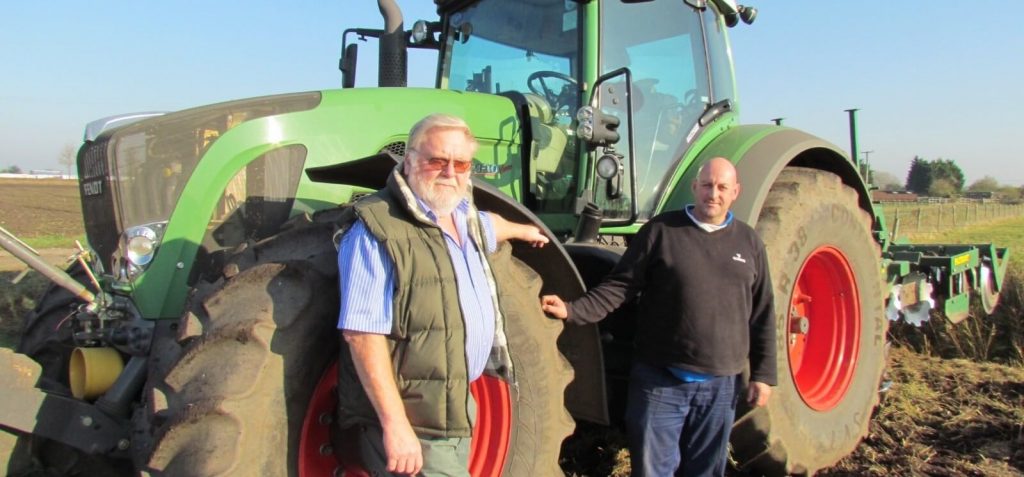
Bill explains: “We have always been happy with the build quality of the Fendt product and the back-up we have received from Fendt. The resale value has always been exceptional, which helps offset the higher than average new cost.
“Fendt have always led the development of new ideas in agricultural engineering, but only released products when they have been proven – the Vario transmission is typical of this progression. We have enjoyed the benefits for 12 years while other makes are still trying to catch up.”
Since TNS took over the sales and service of Fendt in 2000 Jim Sculthorpe, based at Littleport, has been the main contact for A L Legge & Son. Bill adds: “Jim’s enthusiasm and knowledge for Fendt far exceeds the title of ‘sales’, he is always on hand to help and offer guidance. Likewise, Kevin Palmer, our Fendt technician at Littleport, is passionate about the product and has built up vast knowledge of the tractors. He treats them as his own.”
“Since the opening of the Littleport branch, we have had a wider workforce to call on and the pooling of knowledge and experience being brought together has greatly improved the service we receive.”
As Bill points out, he once knew every Fendt and its driver, but not any more – “The vast numbers of Fendt tractors now out and about on farms in the fens shows how popular they have become.”

